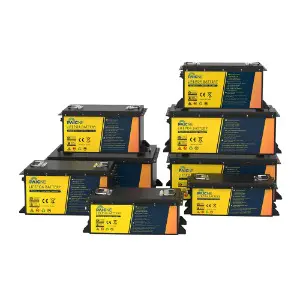Lithium Iron Phosphate Battery technology has become increasingly popular in various energy storage applications due to its safety and longevity. One of the critical parameters affecting battery selection is energy density, which determines how much energy a battery can store relative to its weight or volume. When compared with conventional lithium-ion batteries, understanding the advantages and disadvantages of this battery chemistry in terms of energy density is essential for system designers, manufacturers, and end-users.

In terms of gravimetric energy density, Lithium Iron Phosphate Battery generally exhibits lower values than typical lithium-ion batteries using cobalt-based or nickel-based chemistries. This means that for the same weight, a lithium-ion battery may store more energy. Volumetric energy density, which measures energy stored per unit volume, also tends to be slightly lower for this chemistry. Consequently, applications where weight and space are critical, such as electric vehicles or portable electronics, may face limitations when using this battery type without adjustments to overall design.
Despite lower energy density, the Lithium Iron Phosphate Battery offers significant advantages in safety and thermal stability. Its chemical structure is highly resistant to thermal runaway and overcharging conditions, reducing the risk of fires or explosions compared to other lithium-ion chemistries. In applications where safety is paramount, such as stationary energy storage or commercial vehicles, this battery chemistry provides a reliable solution. Additionally, its stable voltage profile over the discharge cycle allows for consistent performance, even under heavy load conditions, which compensates partially for lower energy density in many real-world applications.
Another advantage linked to energy density is the long cycle life of the Lithium Iron Phosphate Battery. While its energy density may be lower, the battery can sustain thousands of charge-discharge cycles without significant degradation. In contrast, some higher-energy-density lithium-ion batteries experience faster capacity loss under similar conditions. For users prioritizing lifespan and consistent performance, the trade-off in energy density is often acceptable, especially in systems where frequent replacement is costly or inconvenient.
The primary disadvantage of Lithium Iron Phosphate Battery’s lower energy density emerges in applications requiring high energy storage in limited space or weight-constrained environments. Electric vehicles aiming for extended range or portable devices with minimal size may need larger or heavier battery packs to achieve comparable performance to traditional lithium-ion batteries. This can result in design complexity, increased cost, and additional weight management considerations. Engineers must evaluate whether the benefits of safety and longevity outweigh the penalties in energy density for each specific application.
When integrating Lithium Iron Phosphate Battery into energy systems, designers must carefully balance energy density with other factors such as thermal stability, cycle life, and safety. Its lower energy density requires adjustments in packaging, volume, and weight management, but the chemistry’s advantages in reliability and safety often justify these considerations. Understanding both the strengths and limitations of this battery type allows decision-makers to optimize system performance while mitigating potential drawbacks. Strategic deployment in applications like grid storage, commercial vehicles, and stationary power systems highlights its unique value proposition despite lower energy density.
Lithium Iron Phosphate Battery presents a clear trade-off between energy density and other critical performance attributes. While it stores less energy per unit weight or volume than conventional lithium-ion batteries, it offers stability, safety, and lifespan. The suitability of this chemistry depends on application requirements, where safety and long-term performance may take precedence over compactness. By evaluating these trade-offs carefully, engineers and designers can leverage the benefits of Lithium Iron Phosphate Battery while mitigating the limitations imposed by its lower energy density.
Get to know quickly
We are a professional lithium iron phosphate battery, solar energy storage system, industrial and commercial energy storage system manufacturer.
 +86-133 3592 3377
+86-133 3592 3377
 +86-4008833583
+86-4008833583
 Email: [email protected]
Email: [email protected]

Copyright © Zhejiang Paichen Energy Storage Group Co., Ltd All Rights Reserved.
Battery Energy System Manufacturer
